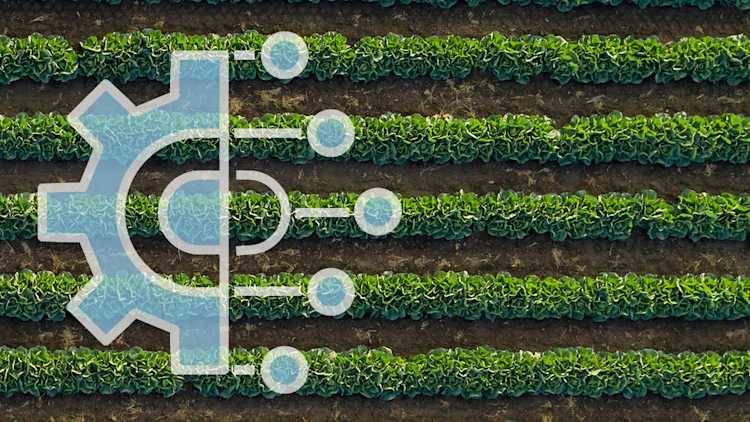AI and machine learning for better farm management decisions

Non-ag sectors like real estate and financial services are experiencing a revolution thanks to artificial intelligence (AI) and machine learning. Agriculture has a similar data-rich environment, but there are differences that make it harder to hand off farm management decisions to a computer.
As a digital product manager for a major agricultural input company, Ontario-based Tony Meekes is entrenched in the pursuit and development of better management tools for farmers. In recent years there’s been plenty of hype surrounding the use of AI to turn reams of agronomic data into meaningful decision aids.
“We’re on the cusp of making significant strides in certain areas. I believe that some of the compelling advances and uses of machine learning in other sectors will find their way into agriculture,” says Meekes. He also points out that AI is a broad term and that machine learning is a better term to describe how good data can be used to generate credible and trustworthy decision-making tools.
What is machine learning?
Machine learning is a form of AI whereby a programmer develops algorithms that teaches the technology how to solve problems rather than having the programmer do it themselves. It’s a major distinction and it’s powerful – in the right setting.
For example, machine learning is used to detect credit fraud by spotting unusual patterns and to provide customer service via chatbots that answer questions. Machine learning completes these tasks quickly and accurately.
Machine learning in real estate
Real estate investors are using AI and machine learning software to predict how properties will perform in the rental market, and future property values. There are also tools that accurately predict property maintenance costs in the near and long term. Machine learning can pull all the available data relating to real estate and take into account other economic information that is peripheral but still impactful. AI software makes these calculations instantly – faster and better than a human.
So what about agriculture?
Machine learning is based on thousands of iterations with good data. High quality data and high numbers of iterations speed up the machine learning process. The algorithm spots patterns and generates a more useful and accurate output.
AI software makes these calculations instantly – faster and better than a human.
But in agriculture, data that is relevant for one region, crop or niche may not be valid or helpful in another. The variables at play are greater and less predictable, even though farmers have been collecting yield and soil fertility data for more than two decades.
Weather remains a challenging wildcard for machine learning in field crop production, so controlled environments in livestock and greenhouse production are better suited to its benefits. Many manufacturers are using machine learning tools to predict which mechanical components in industrial equipment will fail and when. This could be a fit for agriculture too.
Meekes sees a few obstacles that need to be addressed before machine learning is optimized for agriculture. “We saw a number of major players aggressively building crop production and equipment use databases in the past few years, but there is a huge opportunity to use AI and machine learning for financial management,” Meekes says.
“Farmers have been more protective of their financial data so that needs to be addressed, but the success this tech has had in other sectors suggests layering aggregated financial data with production and agronomic data can be extremely powerful,” he says.
What's next
Going forward, Meekes says farmer acceptance of the technology might be the biggest challenge. “Farmers are experienced in using data to validate their experience and gut instincts, but they may be reluctant to hand off major decisions to these tools.”
It’s more likely that they will trust AI to guide them on smaller, day-to-day, real-time decisions, and maybe to get a better handle on how things like inflation, carbon market policies and interest rates may affect financial management decisions.
From an AgriSuccess article by Peter Gredig.

Andrea McFadden runs Okanagan Lavendar and Herb Farm and continues to evolve her business strategy for the success of the operation. Learn how she embraces change, practices resilience and seizes opportunities.